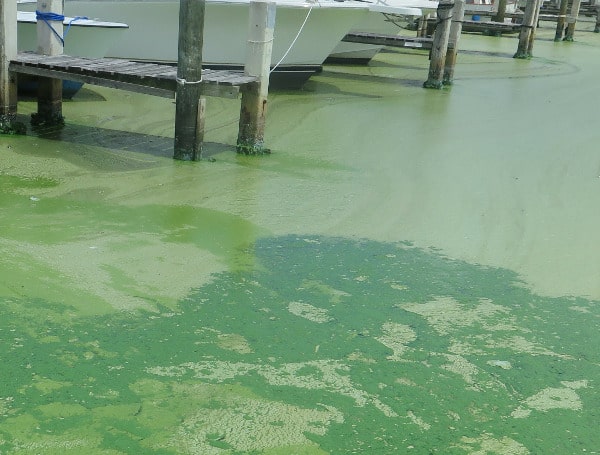PASCO COUNTY, Fla. – The Florida Department of Health in Pasco County has issued a Health Alert for harmful blue-green algal toxins in Dowling Lake-North and Blanton Lake.
This is in response to a water sample taken on April 18, 2024. The public should exercise caution in and around Dowling Lake-North and Blanton Lake.
Residents and visitors are advised to take the following precautions:
- Do not drink, swim, wade, use personal watercraft, water ski or boat in waters where there is a visible bloom.
- Wash your skin and clothing with soap and water if you have contact with algae or discolored or smelly water.
- Keep pets away from the area. Waters where there are algae blooms are not safe for animals. Pets and livestock should have a different source of water when algae blooms are present.
- Do not cook or clean dishes with water contaminated by algae blooms. Boiling the water will not eliminate the toxins.
- Eating fillets from healthy fish caught in freshwater lakes experiencing blooms is safe. Rinse fish fillets with tap or bottled water, throw out the guts and cook fish well.
- Do not eat shellfish in waters with algae blooms.
Read: Pasco Sheriff: Joe Capes Has Been Located Safe
What is blue-green algae?
Blue-green algae are a type of bacteria that is common in Florida’s freshwater environments. A bloom occurs when rapid growth of algae leads to an accumulation of individual cells that discolor water and often produce floating mats that emit unpleasant odors.
Some environmental factors that contribute to blue-green algae blooms are sunny days, warm water temperatures, still water conditions and excess nutrients. Blooms can appear year-round but are more frequent in summer and fall. Many types of blue-green algae can produce toxins.
Is it harmful?
Blue-green algae blooms can impact human health and ecosystems, including fish and other aquatic animals.
For additional information on potential health effects of algal blooms, visit floridahealth.gov/environmental-health/aquatic-toxins.
Find current information about Florida’s water quality status and public health notifications for harmful algal blooms and beach conditions by visiting ProtectingFloridaTogether.gov.
Protecting Florida Together is the state’s joint effort to provide statewide water quality information to prioritize environmental transparency and commitment to action.
What do I do if I see an algal bloom?
The Florida Department of Environmental Protection collects and analyzes algal bloom samples. To report a bloom to DEP, call the toll-free hotline at 855-305-3903 or report online.
Help support the Tampa Free Press by making any small donation by clicking here.
Android Users, Click To Download The Tampa Free Press App And Never Miss A Story. Follow Us On Facebook and Twitter. Sign up for our free newsletter.



